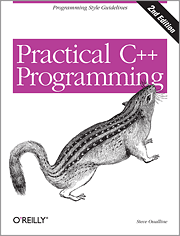class web page:
http://www.sci.brooklyn.cuny.edu/~sklar/cisc1110
instructor:
 |
prof elizabeth sklar email: sklar AT sci.brooklyn.cuny.edu AIM screen name: agentprof office: 1417 N (old ingersoll) office hours: posted on home page: http://www.sci.brooklyn.cuny.edu/~sklar |
class meeting times and location:
tuesdays and thursdays 2:15PM-4:20PM, room 5301 N (old ingersoll)
[ click here for map to classroom ]
course description:
This course is ultimately about control!!!You will learn how to control computers and a surprisingly large number of devices and other seemingly non-technical components that you encounter in your everyday life. Today, technology is ubiquitious, and learning how to control it (before it takes control of you!) is growing increasingly important.
NOTE: This course is formerly known as CIS 1.5.
Not open to students who are enrolled in or have completed Computer and Information Science 1.10 or 1.20 or 2.80 or 15 or 16.
Prerequisites: None.
(4 credits)
course structure:
This section will focus on gaming applications for examples and assignments.
- Class sessions will consist of lectures and hands-on labs.
- Hands-on labs will lead to projects.
- Students may bring their own laptops to the labs, or use the computers in the lab.
computer:
You will need to have access to a computer and the internet for this class, though having your own computer is not required.
You can use the public machines in the library or the WEB building to complete your assignments.
flash drive:
A USB FLASH drive is required.
textbook:
The following textbook is optional.
Comprehensive lecture notes will be posted online.

|
Practical C++ Programming, 2nd edition by Steve Oualline publisher: O'Reilly Media, Inc. (2003) ISBN: 978-0-596-00419-4
You can buy the book online here:
direct from O'Reilly;
print and e-book editions are available.
|
additional course materials:
Course lecture notes, additional readings and multi-media sources
will be available on-line.
the following topics will be covered in 10 curricular units:
- displaying simple information and remembering it (output and data)
- dealing with complex information (arrays and strings)
- reading simple information and making decisions about it (input and control structures)
- doing interesting things with all kinds of information (searching and sorting)
- behaving efficiently (functions)
- organizing programs (simple classes)
assessment:
Your course grade will be made up of the following components, out of 100 points:
- 14 assignments (45% of term grade)
- midterm #1 (10 points = 10% of term grade)
- midterm #2 (15 points = 15% of term grade)
- final exam (30 points = 30% of term grade)